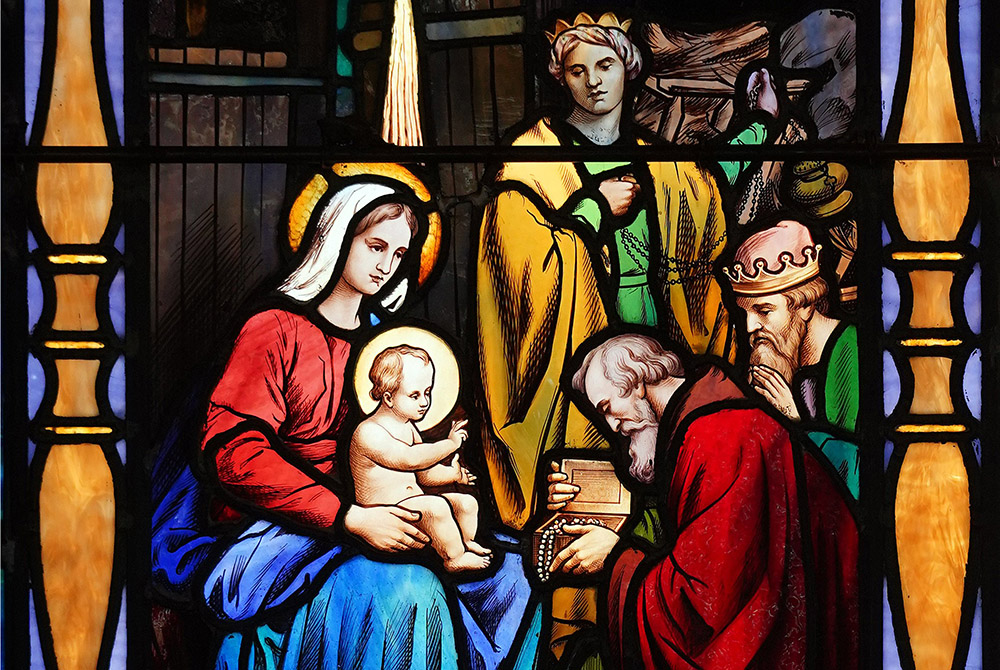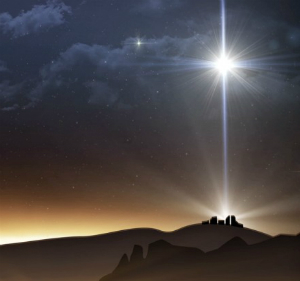Eureka! I have found Jesus!
THE SOLEMNITY OF THE EPIPHANY OF THE LORD
[ Matthew 2: 1-12 ]
The joy of ‘eureka’.
The Greek word ‘eureka’ (or ‘I have found it!’ in English) is an exclamation of joy in celebration of a surprise discovery or a light-bulb moment.
This exclamation is attributed to the ancient Greek mathematician and inventor Archimedes. One day while taking his bath, Archimedes noticed that the water in his bathtub rose as he was stepping into the water. This seemingly insignificant observation suddenly dawned upon him that the volume of the water displaced must be equal to the volume of the part of his body he had submerged. This profound insight helped him solve a previously intractable problem in Physics; and the volume of irregular objects could now be measured with precision. Overjoyed, he leapt out of his tub, ran through the streets naked to share the news of great joy.
Such was the joy of Archimedes’ eureka moment – a lightbulb moment, or an epiphany experience – a moment of sudden and striking revelation and/or realization.
The joy of the Epiphany of our Lord.
The EPIPHANY, in the Christian context, is the manifestation (revelation) of Jesus as the Messiah of Israel, the Son of God and the Saviour of the world. [cf. CCC 528]
The Solemnity of the Epiphany of Our Lord recalls, commemorates and celebrates the seeking, the finding and the adoration of Jesus by the wise men (Magi) from the East:
1) “Where is the infant king of the Jews?” [Mt 2: 2]
The Gospel reading of the Solemnity of the Epiphany begins with the wise men coming from the distant East and asking a simple yet profound question, “Where is the infant king of the Jews?”
The 1st Chapter of the Catechism of the Catholic Church [CCC 27] echoes that “the desire for God is written in the human heart because man is created by God and for God.” Like Archimedes, deep within us, there is a lingering curiosity, a restless desire and an insatiable hunger for something greater than ourselves: ‘our heart is restless till it rests in God.’ [St Augustine of Hippo]
Our curiosity, our desire and our hunger for God are the essential elements which propel us forward in our lifelong journey towards God. Our journey towards God stalls every time when we stop wondering about God; and it is distracted, disrupted, or even derailed when we no longer desire God and hunger for Him.
2) “We saw His star as it rose...” [Mt 2: 2]
Pope Emeritus Benedict XVI has this to say,
“Men and women of every generation need on their pilgrim journey to be directed: what star can we therefore follow? After coming to rest ‘over the place where the child was’, the purpose of the star that guided the Magi ended, but its spiritual light is always present in the Word of the Gospel, which is still able to guide every person to Jesus. This same Word, which is none other than the reflection of Christ, true man and true God, is authoritatively echoed by the Church for every well-disposed heart. The Church too, therefore, carries out the mission of the star for humanity. But something of the sort could be said of each Christian, called to illuminate the path of the brethren by word and example of life.”
Like the Magi, all of us, men and women, are called to embark and persevere on this lifelong journey towards God. Even though darkness may still seem to rule the world today, we are NEVER deprived of spiritual lights.
- The Holy Scriptures (especially the Gospel) is the ‘NEW STAR’ that leads us to our Lord Jesus Christ. It is Christ Himself – shining through the Holy Scriptures – illuminating and enlightening our hearts and minds.
- ‘God’s household, the Church of the living God, is the pillar and bulwark of the Truth.’ [1 Tm 3: 15] The one, holy, catholic and apostolic Church is the LIGHTHOUSE that shines forth and guides ships and boats to safety through the darkness of the night, the confusion of the fog, and the treacherous sea. It is Christ Himself – shining through the Church and the Sacraments – drawing us to Himself.
- As the Lord commands, we Christians are meant to be the ‘LIGHT OF THE WORLD’ for each other: ‘our light must shine before others, so that they may see our good works and give glory to our Father in heaven.’ [cf. Mt 5: 14-16] ‘Now more than ever, we need to be saints – men and women striving to walk with Jesus and to lead holy lives in these unholy times.’ [Archbishop José H. Gomez]
3) Perseverance in seeking. Joy in finding. Humble in adoring.
‘You will seek Me and find Me when you seek Me with all your heart.’ [Jr 29: 13]
Archimedes persevered, and he was rewarded with the famous eureka moment in Physics.
The Magi persevered, and they were rewarded with the epiphany experience – a private audience with the King of Kings and the Lord of Lords. The Gospel according to Matthew describes beautifully, “The sight of the star filled them with delight, and going into the house they saw the Child with His mother Mary, and falling on their knees they did him homage…” Yes, they were delighted, they saw (and believed), and they humbly adored Jesus.
When was the last time we came to Church with such delight, passion and enthusiasm?
When was the last time we humbly knelt before Jesus in the Blessed Sacrament?
Making Jesus our life’s dream. [Pope Francis, Homily, Solemnity of Our Lord Jesus Christ, King of the Universe, 11 Nov 2021]
Archimedes was dreaming for a solution; the Magi were dreaming to find the infant King of the Jews. As Christians, let us we make Jesus the dream of our life: to always have the childlike curiosity, the persistent desire and the yearning hunger for God. Following the light of the Holy Scriptures and the guidance of Holy Mother Church, we know with certainty that we will come at length to Jesus Christ the true Light of the world and dwell in the radiance of eternity.
Let our fervent prayer be:
“Lord Jesus Christ, let Your light shine within us.”
Let us also pray that God’s justice, peace, truth and love may prevail in Ukraine, Sri Lanka and Nicaragua.
[Note: This Gospel reflection was first published on Porta Fidei on 2 Jan 2022.]



Comments
Post a Comment